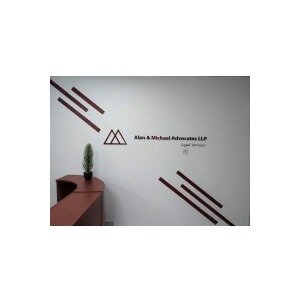Best Housing, Construction & Development Lawyers in Nairobi
Share your needs with us, get contacted by law firms.
Free. Takes 2 min.
Free Guide to Hiring a Real Estate Lawyer
List of the best lawyers in Nairobi, Kenya
Legal guides written by Adroit Law LLP:
- Kenya Launches Digital Nomad Visa: A Gateway for Remote Workers
- Navigating the Payment System License Maze in Kenya
- Navigating the Complexities of Mining Licenses and Permits in Kenya: A Look into Artisanal and Large-Scale Operations
About Housing, Construction & Development Law in Nairobi, Kenya
Housing, Construction & Development in Nairobi, Kenya is guided by a set of legal regulations and local laws that aim to ensure the quality, safety, and sustainability of buildings and the overall development of the city. These laws govern various aspects related to property ownership, construction permits, land use, and urban planning.
Why You May Need a Lawyer
Seeking legal advice in Housing, Construction & Development matters is crucial in several situations, such as:
- Resolving property ownership disputes
- Negotiating construction contracts
- Obtaining necessary permits for building projects
- Understanding zoning and land-use regulations
- Filing or defending against construction-related lawsuits
Local Laws Overview
In Nairobi, Kenya, Housing, Construction & Development Law covers a range of areas:
- Land Control Act: Governs land transactions, including ownership, leasing, and transfers.
- Physical Planning Act: Provides regulations for urban planning, zoning, and land use.
- Building Code: Sets standards for construction, safety measures, and building permits.
- Environmental Management and Coordination Act: Regulates environmental impact assessments for development projects.
- Real Estate (Regulation and Development) Act: Protects the rights of buyers and sets guidelines for real estate transactions.
Frequently Asked Questions
Q: Can I construct a building without obtaining permits in Nairobi, Kenya?
No, it is illegal to construct any building without obtaining the necessary permits from the local authorities. Failure to comply may result in penalties, fines, or even demolition of the unauthorized structure.
Q: What are the steps involved in obtaining a construction permit?
To obtain a construction permit in Nairobi, Kenya, you generally need to submit architectural plans, engineering designs, environmental impact assessments, and other relevant documents to the local building department. The process involves initial review, payment of fees, inspections, and final approval.
Q: How can I resolve a property ownership dispute?
If you are facing a property ownership dispute, it is advisable to hire a lawyer specializing in property law. They can help you gather evidence, assess your legal rights, negotiate with the involved parties, and represent you in court if necessary.
Q: Are there any restrictions on foreign ownership of property in Nairobi, Kenya?
Under Kenyan law, non-citizens can own property in Nairobi and other parts of Kenya. However, there may be certain restrictions or additional requirements depending on the type of property and its location. It is essential to consult with a lawyer familiar with property laws to navigate through the process.
Q: What should I do if I encounter construction defects or poor workmanship?
If you discover construction defects or poor workmanship, it is recommended to seek legal advice promptly. A lawyer specializing in construction law can help assess your options, negotiate with the responsible parties, and potentially file a lawsuit to seek compensation or repairs.
Additional Resources
For further assistance and information in your Housing, Construction & Development matters in Nairobi, Kenya, consider reaching out to:
- Nairobi City County: The local government body responsible for urban planning, building permits, and land use regulations.
- National Construction Authority: Regulates and oversees the construction industry in Kenya, ensuring compliance with construction standards and licensing requirements.
- Institute of Surveyors of Kenya: A professional body that can provide guidance on land surveys, valuations, and property development.
Next Steps
If you require legal assistance in Housing, Construction & Development in Nairobi, Kenya:
- Identify your specific legal needs or concerns.
- Research and choose a lawyer specializing in Housing, Construction & Development law.
- Schedule a consultation to discuss your situation and seek professional advice.
- Provide all relevant documents and information to your lawyer for evaluation.
- Collaborate with your lawyer to develop a strategy and take appropriate legal action if needed.
Lawzana helps you find the best lawyers and law firms in Nairobi through a curated and pre-screened list of qualified legal professionals. Our platform offers rankings and detailed profiles of attorneys and law firms, allowing you to compare based on practice areas, including Housing, Construction & Development, experience, and client feedback.
Each profile includes a description of the firm's areas of practice, client reviews, team members and partners, year of establishment, spoken languages, office locations, contact information, social media presence, and any published articles or resources. Most firms on our platform speak English and are experienced in both local and international legal matters.
Get a quote from top-rated law firms in Nairobi, Kenya — quickly, securely, and without unnecessary hassle.
Disclaimer:
The information provided on this page is for general informational purposes only and does not constitute legal advice. While we strive to ensure the accuracy and relevance of the content, legal information may change over time, and interpretations of the law can vary. You should always consult with a qualified legal professional for advice specific to your situation.
We disclaim all liability for actions taken or not taken based on the content of this page. If you believe any information is incorrect or outdated, please contact us, and we will review and update it where appropriate.

















